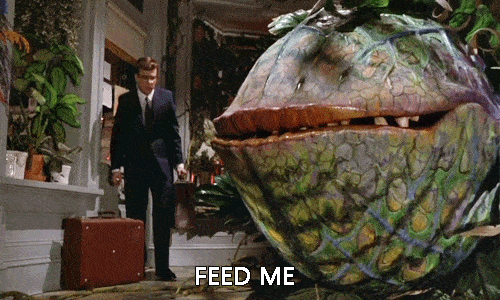How Your Sleep Quality Is Impacting Your Cravings
- Amanda Dane, NTP

- Apr 16, 2020
- 6 min read
Updated: Apr 22, 2022
The CDC reports that 35% of Americans, or 1 out of 3, are not getting enough sleep.
Are you in that 35%?
I often hear people say that they "feel fine" on just 5-6 hours of sleep, however, your body cannot perform all of these tasks in such little time. These are typically the people who are also relying on caffeine to fuel their day, who have weight they can't lose, or health concerns.
Adults, 18-64, need 7-9 hours of sleep per night. If you're getting less than that then your body isn't functioning optimally.
During this time your body is doing important things like, repairing muscles and tissues, releasing hormones, and allows your digestive system to "clean up" and move things along your digestive tract.

While you're sleeping your heartbeat slows, your blood pressure drops, breathing slows, and your brain processes all of the inputs from the day. It does this so that it can divert its efforts to do all of the nighttime processes I mentioned above.
Quality Matters
More important than the number of hours you spend in bed each night is the quality of the sleep you're getting. Say you're someone who is getting seven hours consistently every night. Are you getting seven hours of quality sleep?
Are you in bed for seven hours or sleeping for seven hours? How many times are you waking? Do you have difficulty falling alseep?

Sleep quality makes a huge difference in how much sleep you actually need. If you're getting up and down a lot throughout the night you likely need closer to nine hours, or more. If you sleep really soundly and get a solid seven hours a night you might wake feeling refreshed with plenty of energy all day, without the need for caffeine.
How Sleep Impacts Cravings
Poor sleep quality or not getting adequate sleep means you're hungrier the next day. Your body didn't down-regulate and tap into stored body fat for fuel while you slept. A night of poor sleep will have you craving quick energy the next day..
Poor sleep is associated with diabetes. In fact, if you have sleep apnea you're twice as likely to have diabetes and vice versa.
Your extremely intelligent body knows that you need carbohydrates for quick energy, or glucose. Your carb cravings will be intense. You'll want a pastry with your coffee or something from the vending machine. Maybe you have to start your day with a sugary soda or latte.

You're more likely to make a less than optimal choice at lunch, because you're starving. You'll feel like a bottomless pit that just can't get full. The fact is you're much hungrier all day long and you often lean on additional carbs all day long to help give you the energy you need to get through the day.
Are you ready to say goodbye to your sugar cravings?
How To Improve Your Sleep Quality
As a parent of small children I know that how much time you have to sleep or the number of times you wake isn't always within your control. Here are some of my best tips to take advantage of the time you do spend in bed.
Get a Nighttime Routine
This is just as important for adults as it is for kiddos. Your body knows to start slowing down allowing you to drift into sleep more quickly. Consider these factors when creating your own routine.
Set an alarm - Once you work out your routine then work backwards from the time you want to be asleep to when you should begin your routine. Set a recurring alarm to signal you to start your routine.
Dim the lights - Start signaling your body now. The sun has gone down or is going down and your indoor lighting should follow. Use lamps or a dimmer to starting turning down the light in your home. You can also turn down your thermostat at this point.
Review your checklist - What needs to be done tonight to give you a good start tomorrow? This is often what keeps people from falling to sleep. Get this out of the way before your head hits the pillow. Things like laying out your clothes, preparing lunches, packing backpacks, or even setting up the coffee pot to be ready for the next morning.
Get changed - Wash your face, take your shower/bath, and change into your pajamas.
Wind down - Diffuse essential oils, read a book, write in your journal, or meditate. Try to stay off screens at this point.
Get into bed - Try to be in bed at least 20 minutes before you want to be asleep. Many wind down activities can be done from your bed. Lights out 10 minutes before you want to be asleep.
Avoid Caffeine After Noon
Even if you don't think it's impacting your sleep at night, ditch the afternoon caffeine. After just 2-3 days you'll notice the difference.
Get a Sleep Mask
It's best to sleep in a cool, dark room. If you have any bit of light in your room consider a sleep mask.

Get Blue Light Blocking Glasses
If it's difficult to get the lights dimmed in your home, or you have to do some kind of screen activity like check email, get yourself some glasses like these. These will prevent the blue light from interfering with your circadian rhythm.
Get Morning Sunlight
Another way to regulate your circadian rhythm is to ensure you're getting 30 minutes of sunlight in the morning. This will help your body naturally regulate and wake and sleep with the sun.
Get Adequate Movement
Getting 30 minutes of movement a day can help your body drift into sleep more easily at night. This can double as your 30 minutes of sunshine if you can get outside. You can also break it into two separate 15-minute movements if that works better for you. If there is no time to spare for movement before you leave the house then get it in throughout the day. You can take the stairs, park farther away, do a lap around the parking lot before you go into work, etc.
Avoid Guzzling at Bedtime
If you are someone who wakes to use the bathroom throughout the night, stop drinking at least an hour before bedtime. This means you need to focus on getting plenty of water during the day so your hydrated. Always empty your bladder before lights out.
Throughout the night you become dehydrated so it's always a good idea to start your day with a full glass of water. This helps you rehydrate and get started on the right foot so you aren't guzzling before bedtime.
Get Your Magnesium
Add epsom salt to your bath or make a foot soak as part of your nighttime routine. I add them to my kids bath time and soak my feet...two birds, one stone.
You can also take a supplement. This is the one I use. Magnesium will help your body relax and get a deeper sleep at night. As always, please discuss with your trusted medical provider before beginning a new supplement.
CBD
CBD has become very popular recently and can be very helpful for sleep. If you can't turn your mind off at night you may want to give it a try. This is the one I use. As always, please discuss with your trusted medical provider before beginning a new supplement.
Counteracting A Bad Night
Everyone is going to have a bad night here or there no matter how hard they try to stick to a routine.
If you wake during the night, keep the lights and the screens OFF. Try your best to stay in bed instead of getting up to move around and wake yourself up. Try a short meditation to help you drift back into sleep. If something is on your mind write it down. It's a great idea to keep a notepad by your bed for this reason.
Here are a few ways to help you through the next day after a night of poor quality sleep.
Start your day with a good breakfast - Start with a low-carb breakfast to prevent a blood sugar dip. Think eggs and bacon.
Resist the urge to load up on caffeine - You may feel exhausted in the morning and having a cup of coffee (without sugar) is okay. But downing a pot of coffee is just going to lead to a crash and the jitters. Limit yourself to one cup.
Be prepared with healthy snacks for the day - Pack extra things because you will be hungrier. Think protein and fat. (i.e. hard boiled eggs, Chomps, nuts, full-fat cheese and salami, FBOMB snacks, full-fat cottage cheese, olives) Again, we want your blood sugar to stay steady throughout the day and prevent spikes and dips by overloading on the carbs.
Stay hydrated - Drink plenty of water instead of the caffeinated beverages. This helps increase your energy and regulate your hunger.
Skip the high-intensity workout - When you're tired opt for easy movement or a rest day. Doing high-intensity workouts when you're exhausted increases your chance of injury.
Take a power nap - This is not always possible, but even if you can just get 30 minutes of rest you'll be doing yourself a favor. When possible, make time for a quick power nap.
Bottom Line
Sleep needs to be a priority in your life. Even when you're in a season of life that means you don't always have control over every aspect of your sleep. Use these tips to optimize the quality of sleep you are getting.
If you're consistently getting less than seven hours a night, try increasing your sleep by 15-20 minutes each week.
Be empowered,
Amanda
This post contains affiliate links. If you click on the link and make a purchase I will receive a small commission. There is no cost to you when purchasing through an affiliate link on this website.







Comments